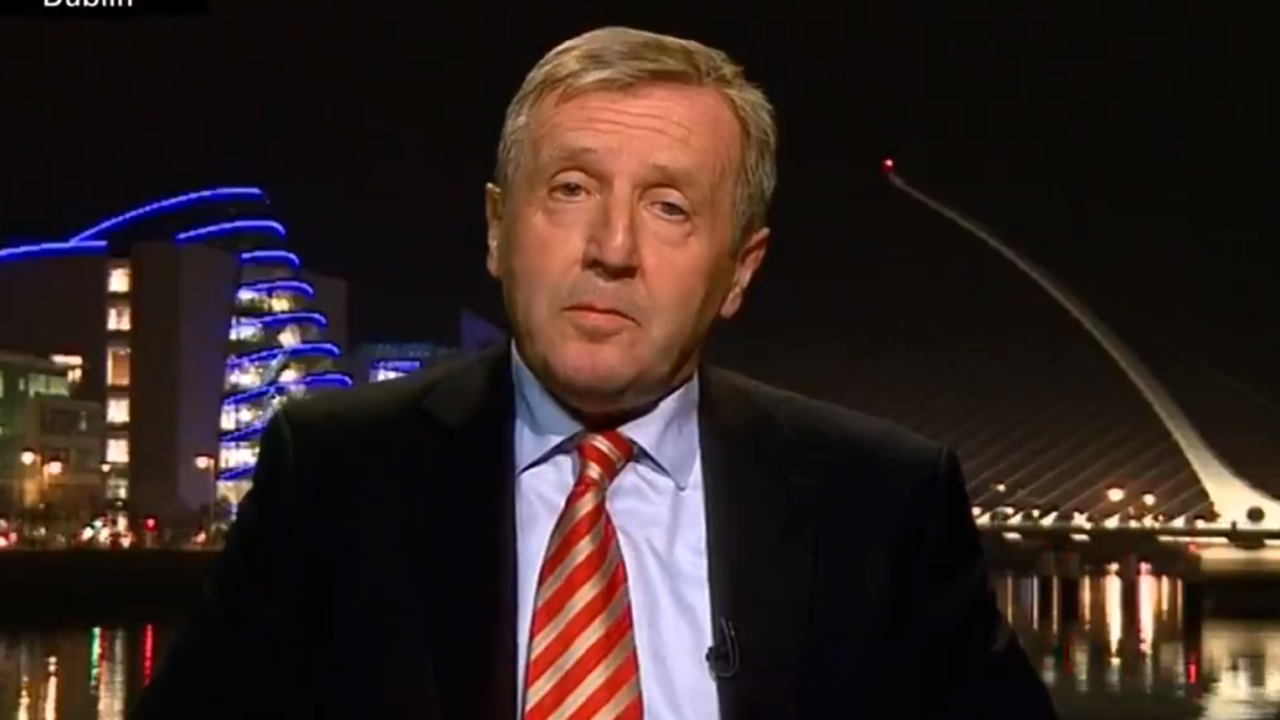Minister for Agriculture, Food and the Marine Michael Creed, appeared on British television last night to clarify the Irish government’s position on Brexit’s sticking point – the border between Northern Ireland and the Republic.
Speaking on BBC 2’s top current affairs programme Newsnight, Minister Creed explained: “Well we have articulated what we believe is a reasonable position to resolve the issue; the UK has clearly set its face against that.
“Our suggestion was that Northern Ireland should remain within the customs union and within the single market; what is clearly incumbent on Theresa May, and her government and her negotiating team, is to articulate an alternative which doesn’t give rise to a hard border – because everyone is agreed that we do not want a hard border.
“Not just for trade reasons but because of the long history of lessons we have learned to our great cost – not just financially but indeed higher cost – over many many years,” the minister said.
“The Good Friday Agreement, the single market and the customs union have facilitated a seamless border over many years.
If the UK government has clearly said ‘no’ to a single market and customs union, it is clearly incumbent on the UK government to articulate a way forward that enables us to have an invisible seamless border which they have said they want.
Fine Gael’s European spokesperson, Senator Neale Redmond and assistant editor of the Irish Times, Fintan O’Toole, both also featured on the same programme.
How could the Irish border issue be resolved in Brexit talks? @EvanHD asks Irish Minister for Agriculture Michael Creed @creedcnw #newsnight pic.twitter.com/Gc6Np33yJ5
— BBC Newsnight (@BBCNewsnight) November 29, 2017
Elaborating in his explanation of the Irish perspective in the issue, Minister Creed continued: “The UK citizens – and I respect their vote – voted to leave the European Union; but they did not of necessity vote to, in the implementation of that decision, vote to leave the customs union or the single market.
“That’s an entirely different interpretation of the issue. My concern is with all of the historical connotations of the border, if they were to re-emerge, that’s something that is violently destructive to the interests of the Republican citizens of Northern Ireland.
That’s why – also in the context of trade – anything that is an impediment to trade no matter what political hat you wear – is to the detriment of citizens north and south.
Negotiations over the border issue in Brexit talks between Ireland and the UK are at a critical point ahead of the deadline set for this coming Monday (December 4) for the British government to set out proposals that will allow overall Brexit negotiations to progress to the next stage.
“Anything that’s an impediment to trade… is to the detriment of citizens north and south” argues Irish Minister for Agriculture Michael Creed @creedcnw #newsnight pic.twitter.com/tmNz5aYTXU
— BBC Newsnight (@BBCNewsnight) November 29, 2017
Such talks will have a substantial bearing on the future of Irish agricultural exports to our nearest neighbour. More to follow…
